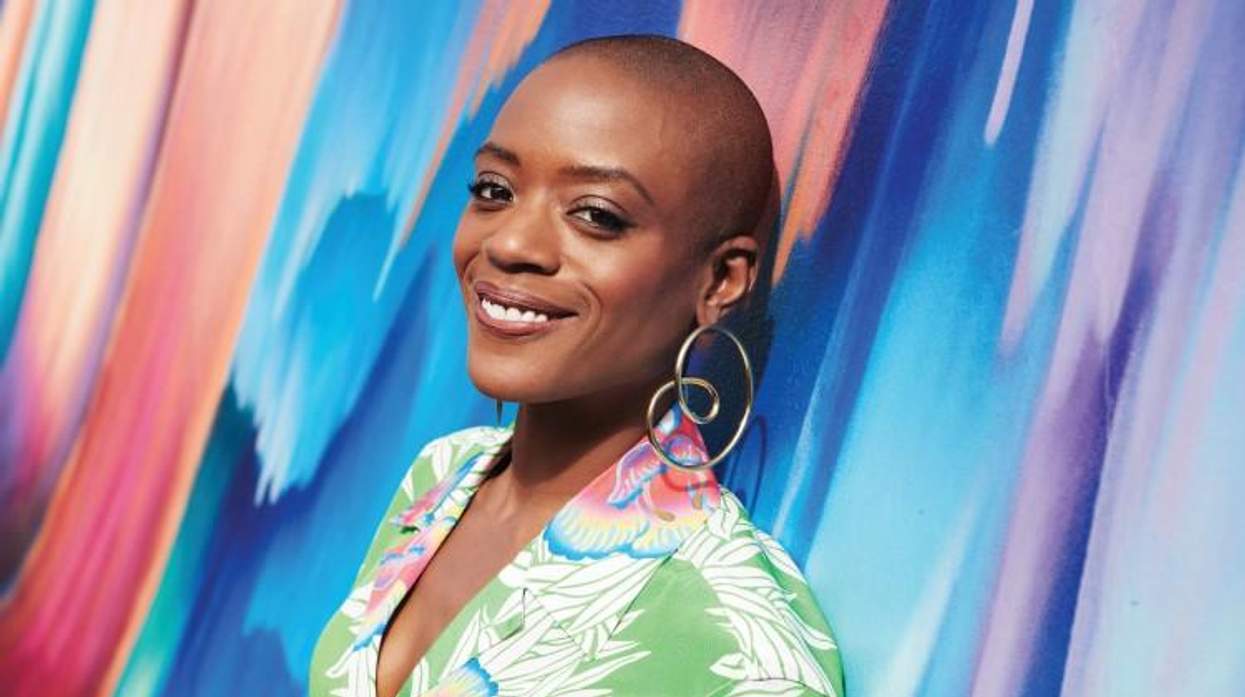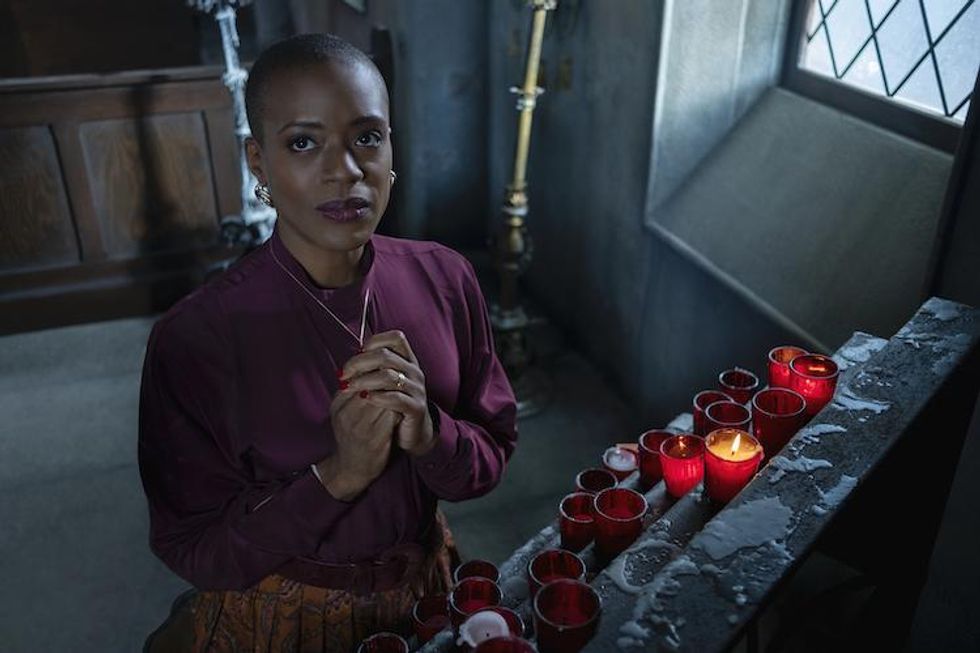A veteran of the queer indie film Stud Life and prestige TV including HBO's frighteningly prescient 2019 show Years and Years, T'Nia Miller has always been out and boldly herself, even if she never had a big public coming-out moment. With a chameleon-like ability to channel a masculine-of-center lesbian as she did in 2012's Stud Life or to lean into her femme identity as the ethereal housekeeper Hannah in Netflix's recent chiller The Haunting of Bly Manor, Miller is on the rise. And she's recently become more vocal about her queer identity, with good reason.
"I didn't make a public declaration. I've never really spoken about my private life, because it's been that," Miller says. "I don't hide things very well, and I never have, and I walk around unapologetically. Not anything with arrogance, but just because I really love life and people."
Considering Miller's openness, there's a sweet irony in her starring in Bly Manor, the follow-up to Netflix's The Haunting of Hill House, which explores the terrors of inner demons rather than random poltergeists.

T'Nia Miller as Hannah in The Haunting of Bly Manor
"It's the worst kind of horror story when you think about it. I think that's why it's engaging in that way, and the same with Hill House.... We all have our own ghost, we all have our own demons. We all have that ego -- who's a fucking liar, excuse my language -- telling you, 'You're not this, you're not good enough,'" Miller says. "And then the media tells you, 'You've got to be this size, and you should have this job, and this car, and this house.'"
"Bly Manor really looks at the human ego and how insidious it is. And it manifests in these ghosts," she says.
Miller's first feature film, Stud Life, from her friend, writer and director Campbell X, premiered at the Fusion Film Festival in Los Angeles eight years ago. Viewers acquainted with that movie and Miller's work on Bly Manor, Years and Years, and Sex Education may not even clock that they're watching the same person.
For her transformation into JJ in Stud Life, Miller says, "I bound my chest, and I packed as well." Surprisingly for Miller, whose shaved head is one of her standout features, it was JJ's hair that presented a real challenge.
"I had several different haircuts. I'd come back to rehearsal and he'd [Campbell X] be like, 'No, it needs to be more boyish," Miller recalls.
"It was amazing because I was mistaken for a straight man or a gay boy, a stud. I had my pick and fill of everybody that I met. And it was nice to get the attention."
But Miller had an eye-opening experience as well when she was pegged by some as a young Black man.
"I was mistaken for a young Black boy a lot of the time, and young Black boys aren't necessarily warmly...received," Miller says. "After three days of walking in that body, of having people hold their handbags or barge [into me], I was like, My God, I understand why these 18-year-old boys are just so angry."
One reason Miller, who has grown children, makes a point to speak more publicly about her queer identity is to help other Black LGBTQ+ folks feel seen. It's something that's especially important in this moment of worldwide reckoning around systemic racism, a "global civil rights movement," Miller calls it.
"The reason why I started talking about my personal life is because there's been lots of difficulties with mental health with children. As an older queer Black woman, we don't see that for our younger Black and my younger Black children -- the men and the women out there in the world."
"There's not many examples of an auntie, we call each other 'aunties,' who is old and who's queer," Miller explains. "If you have a little bit of profile, then you should use it. We need to see ourselves on the screen, whether that's a person of color or it's a person who's come from a working-class background. We need to see ourselves and know that it's possible and that it's OK, and it doesn't carry that shame through."






































































Charlie Kirk DID say stoning gay people was the 'perfect law' — and these other heinous quotes